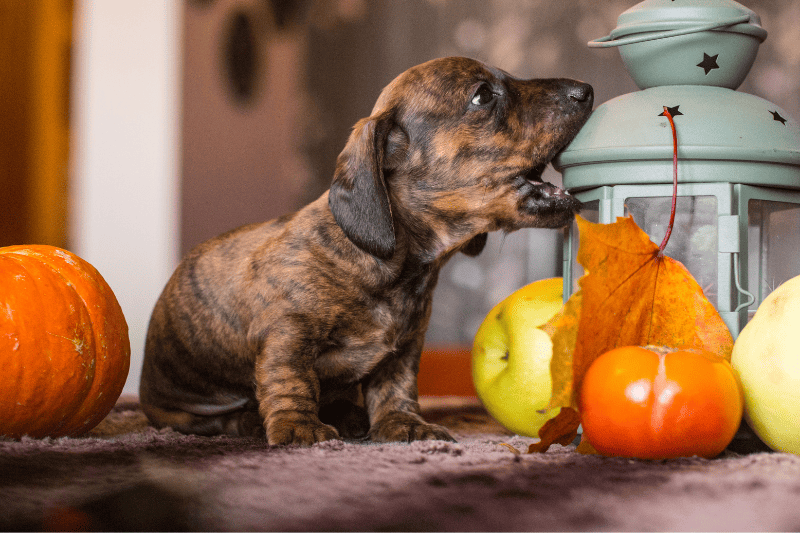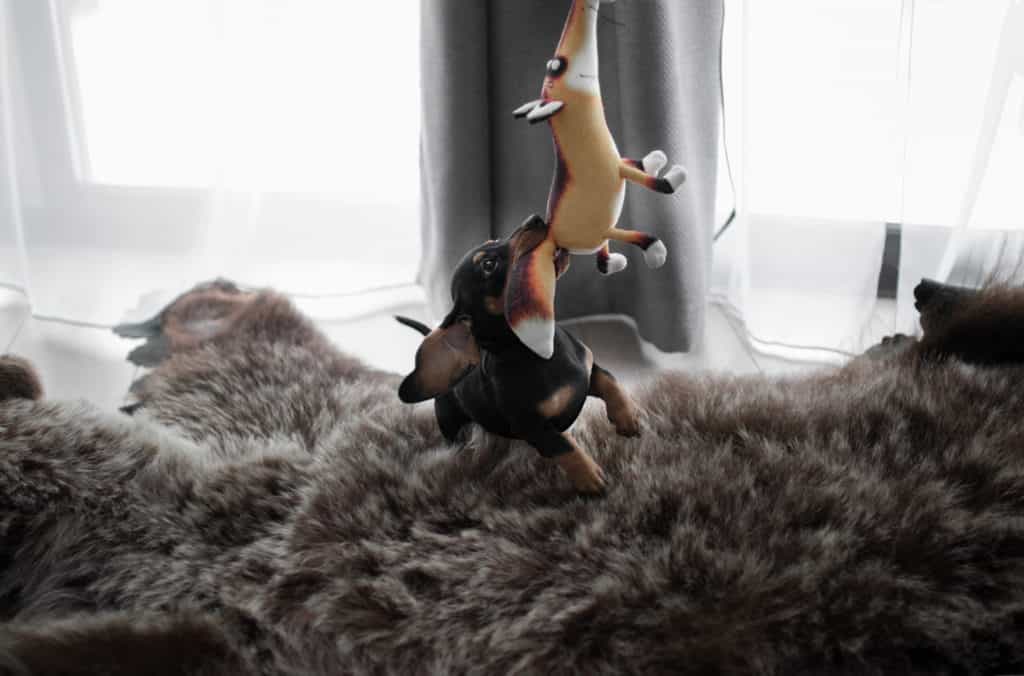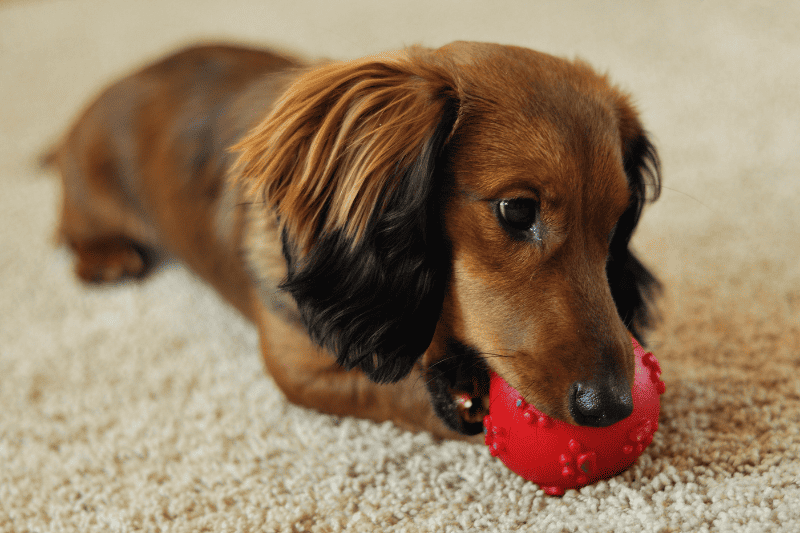
As a proud dachshund puppy owner, you may have experienced the challenge of dealing with its biting behavior. Don’t worry, you’re not alone! Biting is a common issue among dachshund puppies, but with the right training techniques, you can teach your furry friend to control their biting tendencies.
One common issue that many Dachshund puppy owners face is excessive biting. Not only can this behavior be frustrating and painful, but it can also lead to long-term problems if not addressed early on. In this comprehensive guide, we will explore the nature of Dachshund puppies and their biting behavior, and provide you with effective strategies to train your Dachshund puppy not to bite.
Understanding the Reasons Behind Puppy Biting
Before delving into the techniques to address dachshund puppy biting, it is essential to understand why puppies engage in this behavior. By comprehending their motivations, we can tailor our approach accordingly.
Common reasons behind puppy biting
- Teething: Puppies, like human babies, go through a teething phase in which their teeth are growing and causing discomfort. Dachshund puppies bite to help alleviate this discomfort.
- Exploration: Dachshunds are a curious and adventurous breed. Dachshund puppies use their mouths to explore the world around them. They may bite everything within their reach, including your hands and feet.
- Playfulness: Dachshund puppies have abundant energy and enjoy rough play; biting can be a part of their play behavior, especially when they haven’t learned appropriate boundaries yet.
- Attention-seeking: Puppies may resort to biting as a means of getting attention from their owners. Negative attention, such as scolding or pushing, can inadvertently reinforce this behavior.
Now that we have an understanding of why puppies bite, let’s explore effective strategies to address and discourage this behavior.
Related post: Are miniature dachshunds aggressive?

How to Train a Dachshund Puppy Not to Bite
1. Provide Appropriate Chew Toys
To redirect your dachshund’s biting behavior, it is crucial to offer suitable alternatives. Provide a variety of chew toys made specifically for teething puppies; these toys should be durable, safe, and appealing to their senses. Encourage your puppy to chew on these toys instead of your hands or furniture.
2. Socialization
Proper socialization is key to raising a well-behaved puppy. Exposing your dachshund to various people, animals, and environments can help it develop bite inhibition. Socialization teaches puppies to control the pressure of their bites and understand what is considered acceptable play.
3. Bite Inhibition
Engage in controlled play sessions with your puppy, allowing them to interact with other dogs and people. If your puppy bites too hard during play, let out a high-pitched yelp to signal that the bite was too rough. This mimics how littermates would respond, teaching your puppy to moderate its bite force.
4. Positive Reinforcement Training
Dachshunds are emotionally driven dogs and do not respond well to scolding. Therefore, when training a dachshund, positive reinforcement should be utilized as an effective training technique. This technique rewards desirable behaviors and discourages unwanted ones.
Use this approach to teach your Dachshund puppy bite inhibition and reinforce appropriate behavior. Here’s how you can implement positive reinforcement training:
- Reward calm behavior: When your puppy remains calm and refrains from biting, offer praise, treats, or a favorite toy as a reward. This will help them associate gentle behavior with positive outcomes.
- Interrupt and redirect: If your puppy starts to bite, firmly say “No!” and gently redirect its attention to an appropriate chew toy. Once it engages with the toy, praise and reward it for making the right choice.
4. Consistency and Boundaries
Consistency is crucial when addressing puppy biting. Establish clear boundaries, and enforce them consistently, to help your puppy understand what behavior is acceptable. Dachshunds are known to be bossy dogs, so setting boundaries and being consistent is essential for teaching them the appropriate way to behave.
Here are some key tips:
- Use a firm voice: When your puppy bites, use a firm but non-aggressive tone to communicate your disapproval. This helps them associate biting with negative consequences.
- Avoid rough play: While puppies need to play and exercise, avoid engaging in rough play that encourages biting. Instead, encourage gentle play and provide appropriate outlets for their energy.
- Time-outs: If your puppy persists in biting, despite your efforts, consider implementing short time-outs. Please place them in a quiet and safe space for a brief period, which teaches them that biting results in the loss of attention and playtime.
- Start early: Dachshunds may exhibit dominant and aggressive behavior. It is important to train them as puppies to understand that nipping and biting, even in play, is unacceptable. Failure to do so may result in their display of dominant and aggressive behavior later on in life.
- Consistency: Dachshunds are known for their stubbornness, and they need consistent reinforcement to understand boundaries. Therefore, be patient and remain consistent in your training approach to help them learn the desired behaviors.
Related post: When Wiener Dogs Attack: Causes and Prevention of Dachshund Bites
5. Seek Professional Help if Needed
If you’re struggling to curb your puppy’s biting behavior despite consistent training efforts, don’t hesitate to seek professional assistance. A qualified dog trainer or behaviorist can assess the situation, provide personalized guidance, and help you address any underlying issues that are contributing to the biting behavior.
Related post: Understanding Dachshund’s Bite Force

Set Up a Safe Environment
To keep your Dachshund puppy safe and avoid destructive behavior, it is important to “puppy-proof” your home. This includes taking practical precautions such as securing electrical cords, getting rid of toxic plants, and safely storing household items that could be dangerous if chewed.
During the teething phase, Dachshund puppies tend to chew a lot. Giving them lots of chew toys can help them redirect their biting behavior and prevent damage to your belongings. To teach your Dachshund puppy about personal space and boundaries, it is helpful to create a specific area just for them, such as a playpen or crate.
Related post: How To Dachshund Proof Your Home & Garden
Conclusion
In conclusion, dachshund biting is a common behavior that can be effectively managed with the right strategies and consistent training. By providing appropriate chew toys, socializing your puppy, using positive reinforcement training, setting clear boundaries, and seeking professional help if necessary, you can help your dachshund puppy overcome this behavior and establish a harmonious relationship based on trust and mutual respect.
Remember, each puppy is unique, and it may take time and patience to see significant progress. Stay consistent, be patient, and celebrate small victories along the way. With your dedication and the strategies outlined in this guide, you can successfully stop puppy biting and create a loving bond with your furry friend.
Note: The above article is a comprehensive guide to stopping puppy biting and does not constitute professional advice. Always consult with a qualified veterinarian or dog trainer for personalized guidance tailored to your specific situation.
Discover Your Ultimate Guide to Dachshund Puppy Care and Training and Become the Best Dachshund Parent! 🐾
Recent Posts
Calculate the perfect food portions for your dachshund with our specialized calculator. Get customized feeding recommendations based on size, age, and activity level to support your wiener dog's back...
Looking for the perfect gift for a proud dachshund mom? We’ve rounded up the cutest dachshund shirts that celebrate your love for wiener dogs in style. Whether you’re shopping for yourself or a...


